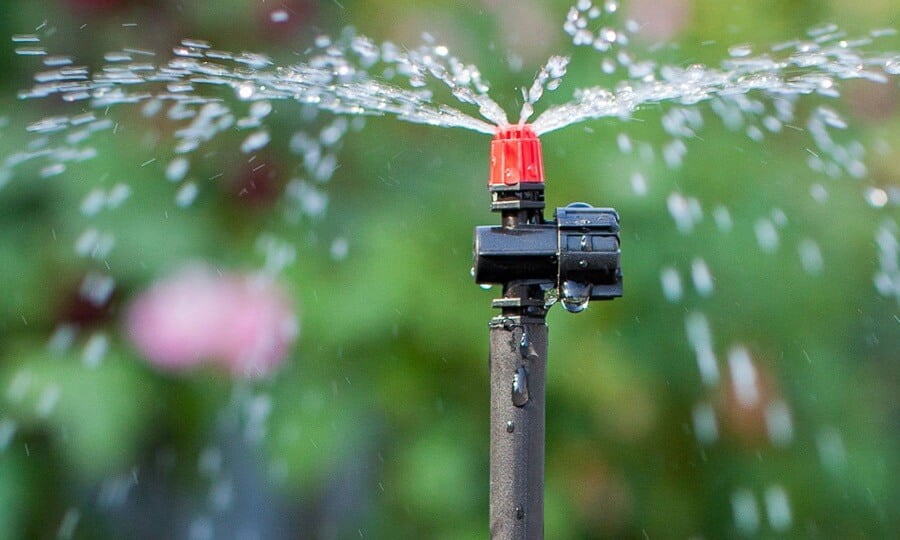Impatiens are beautiful shade-loving plants that can add a pop of color to any garden. However, if you have deer roaming around in your area, you might be wondering if these graceful creatures consider impatiens as part of their menu. Unfortunately, the answer is yes. Deer do eat impatiens, especially when there are no tastier options available.
At Rutgers University, impatiens are classified as plants that are occasionally severely damaged by deer. This means that if there are more desirable plants or other food sources nearby, the deer will likely choose those first. But don’t worry, there are ways you can protect your impatiens from becoming a delicious feast.
To safeguard your impatiens, you can employ various garden safety tips. One effective strategy is to use scent-based deterrents that repel deer. These deterrents emit smells that deer find unpleasant, ensuring that they steer clear of your precious plants. Remember to reapply the deterrents regularly for maximum effectiveness.
Another approach is to plant your impatiens near other plants that deer dislike. Herbs and ferns, for example, are often unappetizing to deer, so surrounding your impatiens with these plants can create a natural barrier. Additionally, using hanging baskets can help keep your impatiens out of reach from hungry deer.
If your impatiens have already fallen victim to deer damage, it’s important to remove any damaged parts and provide proper care to stimulate new growth. Regular watering and feeding will support the recovery process and ensure your impatiens bounce back beautifully.
While deer pose a significant threat to impatiens, it’s worth noting that other animals can also cause damage. Rabbits, opossums, and insects are among the potential culprits. To safeguard your impatiens further, you can implement additional deterrents and protection methods.
Now that you’re aware of the risks and armed with garden safety tips to protect your impatiens from deer and other threats, you can create a beautiful garden without sacrificing your favorite plants.
How to Protect Impatiens from Deer
To protect your impatiens from deer, you can utilize several effective strategies. Implementing scent-based deterrents and planting companion plants are just a couple of methods to safeguard your impatiens from these hungry creatures. If your impatiens have already been damaged by deer, it’s crucial to remove any compromised parts and provide proper care to promote new growth. Let’s explore these protection methods in detail.
Scent-Based Deterrents
One successful approach to safeguarding your impatiens from deer is by using scent-based deterrents. These deterrents emit smells that deer find unpleasant, deterring them from approaching your plants. It is imperative to apply these deterrents regularly to maintain their effectiveness in repelling deer. By utilizing these products, you can significantly reduce the risk of deer feasting on your beloved impatiens.
Companion Planting
Another effective strategy to protect impatiens from deer is through companion planting. Surrounding your impatiens with plants that deer dislike, such as herbs and ferns, can help deter them. These companion plants act as a natural barrier, reducing the chances of deer targeting your impatiens. By strategically selecting plant companions, you can create a less appealing environment for deer and safeguard your impatiens from their hungry browsing.
Hanging Baskets
Hanging baskets can be a useful tool in defending your impatiens against deer. By elevating your impatiens through hanging baskets, you make it more challenging for deer to reach them. This elevated position acts as a physical barrier, helping to keep your impatiens safe and out of deer’s reach. Incorporating hanging baskets into your planting strategies can be an effective way to maintain the health and beauty of your impatiens.
If your impatiens have already been damaged by deer, the extent of their recovery will depend on the severity of the damage. It’s crucial to remove any damaged parts promptly and provide proper care, including regular watering and feeding, to support new growth and restore your impatiens’ vitality. By following these protection and growth support strategies, you can enjoy the beauty of your impatiens while keeping deer at bay.
Are Impatiens Safe to Plant in a Garden with Gophers?
Impatiens are not a preferred meal for gophers, which is good news for gardeners dealing with these rodents. Gophers primarily eat grasses, roots, and bulbs, and typically avoid impatiens. So, if you’re wondering what gophers eat, rest assured that they are unlikely to devour your impatiens when planted in your garden.
Other Animal Threats to Impatiens and How to Deter Them
While deer are a common threat to your impatiens, they are not the only animals that can cause damage to these beautiful plants. Rabbits, opossums, and insects can also pose a risk to the health and vitality of your impatiens. It is important to take proactive steps to protect your plants from these animal threats.
Rabbits can quickly decimate your impatiens, leaving you with nothing but chewed stems and bare soil. To deter rabbits, consider using netting to create a physical barrier around your plants. This will prevent them from accessing your impatiens and devouring them as a tasty meal. It is important to choose a durable and tightly-woven netting material to ensure that it effectively keeps the rabbits out.
Insects, such as aphids and caterpillars, can also wreak havoc on your impatiens. To protect your plants from insect damage, it is advisable to use a combination of netting and insect repellents. The netting will serve as a physical barrier, preventing insects from reaching your impatiens. Additionally, applying insect repellents specifically designed for flowers can provide an extra layer of protection. Remember to select repellents that are safe for your impatiens and to reapply them regularly for continued effectiveness.
While fences may seem like a logical solution to protect your impatiens from rabbits and opossums, these animals are agile enough to find their way through or over fences, rendering them ineffective. Therefore, it is essential to employ alternative methods, such as netting and repellents, that specifically target the deterrent needs of these animals. By taking these measures, you can ensure the safety and success of your impatiens, allowing them to thrive and brighten your garden.









